UCZESTNICY
Powrót na stronę główną konferencji
PANEL 1:
„Czy istnieje uniwersalna kultura pojednania?”
"Is there a universal culture of reconciliation?"
Waldemar Czachur, prof. UW, dr hab., profesor w Instytucie Germanistyki Uniwersytetu Warszawskiego, zajmuje się lingwistyczną analizą dyskursu i relacjami polsko-niemieckimi; kurator wystawy o historii pojednania polsko-niemieckiego "Odwaga i pojednanie" w Krzyżowej.
Professor at the Institute of German Studies of the University of Warsaw, fields of research: linguistic discourse analysis and Polish-German relations; curator of the exhibition on the history of Polish-German reconciliation “Courage and reconciliation” in Krzyżowa

Wybrane publikacje:
(2018): Versöhnung als multimodaler Erinnerungstext. Eine kultur- und medienlinguistische Analyse am Beispiel der deutsch-französischen und der deutsch-polnischen Beziehungen, w: W. Czachur, H.-H. Lüger (red.): Kollektives Gedächtnis und europäische Nachbarschaftsbilder. Beiträge aus kulturlinguistischer Perspektive. Landau: Verlag Empirische Pädagogik, s. 23-62.
(2016): Most(y) zjednoczonej Europy. 25 lat polsko-niemieckiego Traktatu o dobrym sąsiedztwie i przyjaznej współpracy. Warszawa: Fundacja Współpracy Polsko-Niemieckiej.
(2017): Msza Pojednania w Krzyżowej – wyraz zgniłego kompromisu polsko-niemieckiej polityki historycznej?, w: K. Ziemer, J. Andrychowicz-Skrzeba (red.): Pomiędzy Jubileuszami. Polityka historyczna w polsko-niemieckiej codzienności. Warszawa: Friedrich-Ebert-Stiftung, s. 300-315.
Pojednanie polsko-niemieckie, jak każde pojednanie między narodami, jest procesem społecznym, politycznym i kulturowym. Cechuje się ono inną specyfiką i dynamiką niż pojednanie niemiecko-francuskie. Jest w swoim założeniu jego wymuszoną kopią, która tylko częściowo sprawdziła się w dialogu polsko-niemieckim. Pojednanie polsko-niemieckie jako „produkt polityczny” nie ma obecnie w polskiej i niemieckiej pamięci oraz w relacjach polsko-niemieckich żadnej łączącej funkcji senso- i narracjotwórczej. Dzieje się tak, ponieważ w obu społeczeństwach symbole pojednania, szczególnie te po 1989 roku, nie przewartościowały myślenia o sobie w kontekście sąsiada, z którym dąży się do pojednania. Same symbole pojednania nacechowane były licznymi sprzecznościami i wywoływały kontrowersje, które kwestionowały dobrą wolę sąsiada. Obecnie konieczne jest wypracowanie nowej formuły polsko-niemieckiego pojednania, obejmującej specyfikę trudnych relacji polsko-niemieckich w XIX i XX wieku oraz specyfikę polskiej i niemieckiej geopolityki w kontekście polityki na rzecz pokoju i bezpieczeństwa.
Polish-German reconciliation, like any other reconciliation between nations, is a social, political and cultural process. It has a different specificity and dynamics than German-French reconciliation. It is its forced copy, which has only partially proved itself in the Polish-German dialogue. At present, Polish‑German reconciliation, perceived as a “political product”, has no sensory or narrative function in Polish and German memory and in Polish-German relations. This is caused by the fact that in both societies (especially after 1989) symbols of the reconciliation did not re-evaluate self-perception in the context of the neighbor with whom reconciliation is sought. These symbols were characterized by numerous contradictions and caused controversy that questioned the neighbor’s goodwill. Currently, it is necessary to develop a new formula for Polish-German reconciliation, which would cover the specifics of the difficult Polish-German relations in the 19th and 20th centuries and the specifics of Polish and German geopolitics in the context of peace and security policy.
Dr. Martina Fischer, Brot für die Welt, Berlin (Germany)

Consultant for peace and conflict transformation at Bread for the World (Berlin) since April 2016. For the Berghof Foundation in Berlin, from 1998 onwards, she dealt primarily with peacebuilding in post-conflict societies and the role of civil society in conflict transformation. She has written relevant scientific publications on these topics and accompanied various practical projects, such as reconciliation in the Balkan region. From October 2011 to October 2017 she was a member of the presidium of the German Protestant Kirchentag, which she continues to support in matters of peace policy.
Abstract
The concept of transitional justice, stemming from the international human rights movement, at first referred to the judicial process of addressing human rights violations committed by dictatorial or repressive regimes in the course of democratic transition. Later on the term also came to be used for processing war crimes and massive human rights abuses committed in violent conflicts. Today it covers the establishment of tribunals, truth commissions, lustration of state administrations, settlement on reparations, and also political and societal initiatives devoted to fact-finding, reconciliation and cultures of remembrance. Scholars and practitioners widely agree that societies recovering from oppression or violent conflict need both legal and restorative approaches, addressing different levels and dimensions of truth and justice. A holistic interpretation should be based on accountability, truth recovery, reparations, institutional reform and reconciliation. Reconciliation needs both the orchestration of top-down and bottom-up processes. Civil society actors have a special role to play. Reconciliation must be accompanied by acknowledgement of the past, the acceptance of responsibility, acknowledgement for the suffering of all sides involved in a conflict, and steps towards (re-)building trust. It is a long-term process and identifying suitable starting points depends on the specific situation in a society. However, the concept is ambivalent and - due to its Christian connotation an emphasis on “forgiveness” – it needs to be applied with care and sensitivity in different cultural contexts.
prof. dr hab. Pierre-Frédéric Weber
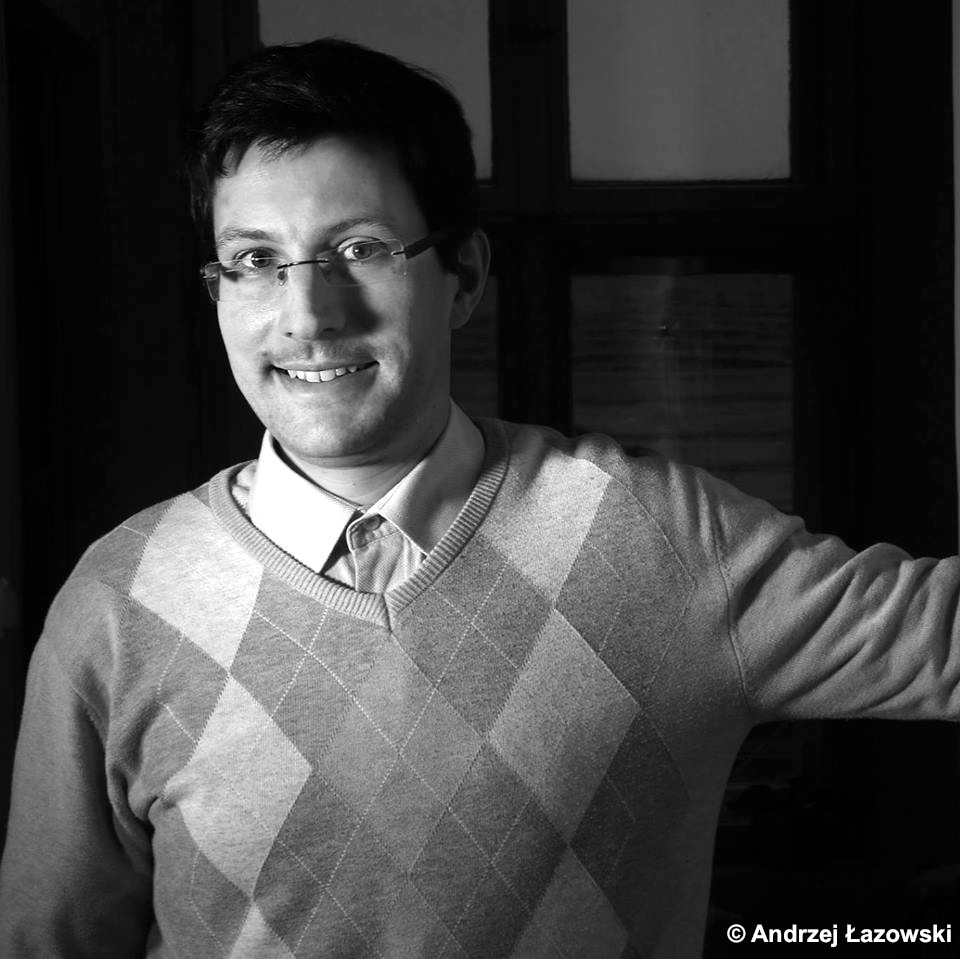
Germanista i historyk (Paris III – Sorbonne Nouvelle, 2003); doktor nauk w zakresie historii stosunków międzynarodowych (Paryż, 2006); doktor habilitowany nauk humanistycznych w dziedzinie historii (Szczecin, 2017); profesor Uniwersytetu Szczecińskiego, Instytut Historii i Stosunków Międzynarodowych.
Zakres badań: stosunki Niemiec z krajami Europy Środkowej po roku 1945; stosunki polsko-francuskie; interakcje francusko-niemiecko-polskie w latach 1945-1989/90 oraz we współczesności; procesy normalizacyjne Wschód/Zachód; emocje (m.in. strach) w stosunkach międzynarodowych.
Wybrane publikacje:
– Timor Teutonorum: Angst vor Deutschland seit 1945. Eine europäische Emotion im Wandel (Paderborn: Ferdinand Schöningh-Verlag, 2015),
– Cultures of fear in international relations: contribution to an historical sociology of emotions, J. Kleres & Y. Albrecht (eds.), Die Ambivalenz der Gefühle: über die verbindende und widersprüchliche Sozialität von Emotionen (Wiesbaden: VS Verlag für Sozialwissenschaften, 2015), s. 187-204,
– Le triangle RFA-RDA-Pologne (1961-1975): guerre froide et normalisation des relations germano-polonaises (Paris: L'Harmattan, 2007)
Na kwestię o możliwościach przekładania wzoru udanego pojednania między dwoma dawniej wrogo do siebie nastawionymi narodami na sytuację konfliktową zaistniałą w stosunkach między innymi narodami nie istnieje jedna prosta odpowiedź, bowiem zależeć będzie ona w każdym przypadku od całego zestawienia czynników determinujących, takich jak przede wszystkim:
- koncepcji czasu danych społeczeństw,
- roli religii i funkcjonujących form pokuty,
- stopnia obciążenia doświadczeniem historycznym,
- kultur pamięci,
- reżimów wzgl. kultur emocjonalnych,
- ewentualnej roli zewnętrznych aktorów (poprzez presje, zachęty itd.).
Wszystkie te czynniki lub niektóre z nich mogą wpływać na dany konflikt bilateralny zarówno hamująco jak i w przeciwnym przypadku- pobudzająco, w zależności od tego, jak mocno aktorzy różnią się od siebie w poszczególnych aspektach. Za tym idzie więc pytanie o kompatybilność kulturową między wzorcem pojednania wypracowanym w jednej konfiguracji bilateralnej (np. polsko-niemieckiej) z jednej strony, a wzorcami obowiązującymi w drugiej (np. między narodami Bałkanu). Możliwe zagadnienia dotyczą m.in. kwestii przyjmowania wzorca chrześcijańskiego przez (bałkańskiego) aktora islamskiego obszaru religijno-kulturowego, albo potencjalnych zakłóceń na niwie kultur pamięci. Istotną rolę w adaptacji modelu pojednania mogą również odgrywać zbliżenia na poziomie dominujących kultur emocjonalnych.
Germanist and historian (Paris III – Sorbonne Nouvelle, 2003); Ph.D. in the field of the history of international relations (Paris, 2006); habilitation in the field of history (Szczecin, 2017), Professor at the Institute of History and International Relations of the University of Szczecin.
Fields of research: Germany’s relations with the Central European countries after 1945; Polish‑French relations; French-German-Polish interactions in 1945-1989/90 and at present; East/West standardization processes, emotions (i.a. fear) in international relations.
There is no simple answer to the question of the possibilities of translating the pattern of the successful reconciliation between two formerly hostile nations into a conflict situation in relations between other nations. In each case this answer depends on a set of various determining factors, such as:
- the concept of time in given societies,
- the role of religion and functioning forms of penance,
- the level of historical experience burden,
- memory cultures,
- regimes regarding emotional cultures,
- the possible role of external actors (through pressures, incentives, etc.).
All of these factors (or some of them) can affect a given bilateral conflict by stimulating or inhibiting it, depending on how significantly the actors differ from each other in particular aspects. That evokes questions regarding the cultural compatibility between reconciliation patterns developed in different bilateral configurations (eg. Polish-German and between Balkan nations). Some possible issues include the question of adopting a Christian pattern by a Balkan actor of Muslim background, or potential interferences in the field of memory cultures. Rapprochement at the level of dominant emotional cultures may also play an important role in adapting the reconciliation model.
Olga Barbasiewicz
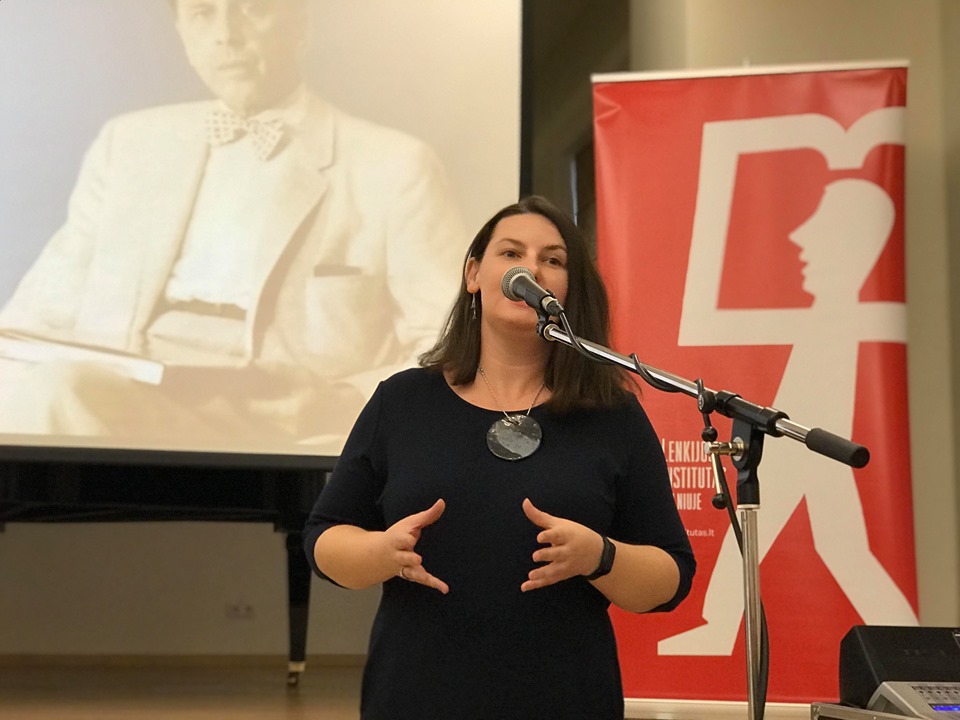
PhD in social sciences (political science). Political scientist and Japanologist. She conducts research on politics of remembrance and its role in international relations. She focuses on reconciliation in East Asia in a comparative perspective with European examples of rapprochement. Curator of the exhibition "Polish Ambassador to Japan Tadeusz Romer and Jewish war refugees in the Far East" in Kaunas, Vilnius, Rokiskis, Tokyo and in 2020 in Tsuruga (organized by the Polish Institute in Vilnius and Tokyo). The laureate of a Scholarship for Outstanding Young Scientists (2018-2021) granted by the Ministry of Higher Education.
Selected publications:
Barbasiewicz, O. (2019). Hidden Memory and Memorials The Monument in Memory of the Korean Victims of the Atomic Bomb and the Remembrance of Korean Victims. Polish Political Science Yearbook, 2, 289-303.
Barbasiewicz, O. (Ed.). (2018). Postwar reconciliation in Central Europe and East Asia : the case of Polish-German and Korean-Japanese relations (p. 167). Berlin : Peter Lang.
Barbasiewicz, O. (2017). Different anniversaries, same purpose : war memory and reconciliation in Central Europe and East Asia (2014-2015) : the case of Polish-German and Japanese-South Korean relations. Retrieved from http://www.aicgs.org/issue/different-anniversaries-same-purpose-war-memory-and-reconciliation-in-central-europe-and-east-asia-2014-2015/
Barbasiewicz, O. (2016). Pomniki i miejsca pamięci w relacjach międzynarodowych. Wpływ pamięci na stosunki japońsko-amerykańskie z perspektywy Japonii. Warszawa: Polska Akademia Nauk.
Abstract
Japan and Korea, the democratic allies under the protection of a hegemonic patron and the guarantor of regional stability – the United States, keep struggling over the history. Being an important security and economic partners, they continue the disputes which lead to the temporary withdrawals of the diplomates from their diplomatic missions. Looking for the universal patterns of reconciliation, both countries mention Polish and German normalization and postwar cooperation. Therefore, it is worth analyzing which practices and reconciliation models can serve as universal patterns. And what are the obstacles for achieving the full reconciliation in the allied countries.
Dr. Jörg Lüer, Deutsche Kommission Justitia et Pax, Secretary-General, Berlin
Is there a universal culture of reconciliation?
- Master plans and blueprints for reconciliation processes do not exist. Every case is unique. The particularities of these cases have to be respected. If we would not respect them, we would not respect the suffering of the people, which means we do not respect the people. Violence is never abstract it is always contextual and very and painfully concrete. Therefore also our answer has to be concrete and contextual.
- None the less there are some questions and challenges we have to face in every single situation. Due to the human nature, which is anthropologically equal in every context we are facing the same core problems within very particular circumstances. The answers to these problems have to be made up on the ground of the particular constellations. Nevertheless the exchange of experiences has been proofed to be an important inspiration for the actors in processes of reconciliation.
- The use of the term “reconciliation” is quiet often signed by high ambiguity. Using this word describing the horizon of the desired social and individual developments one has to be aware about attempts to misuse the idea of reconciliation. It is used too often in a superficial way not taking really into account the deep wounds of the individuals and groups. Before we can talk about reconciliation we have to speak about the wounds and the un-reconciled.
- The ways of reconciliation start with respecting the suffering of the victims or the "others". This is as well a matter of solidarity and justice as of hermeneutic necessity in order to open eyes, hearts and minds to the full reality. What we need is the development of a multi-perspective culture and a culture of dialogue.
- We have to understand reconciliation as a long going process of personal and social transformation. It is a way in and through conflicts which have to be stood and dealt with. Not everything can be healed but we can learn to live with the present wounds and this is much more than people after violent conflict often can imagine.
PANEL 2:
„Dialog i pojednanie: doświadczenia społeczeństw na Bałkanach Zachodnich”
"Dialogue and reconciliation: experiences of societies in the Western Balkans"
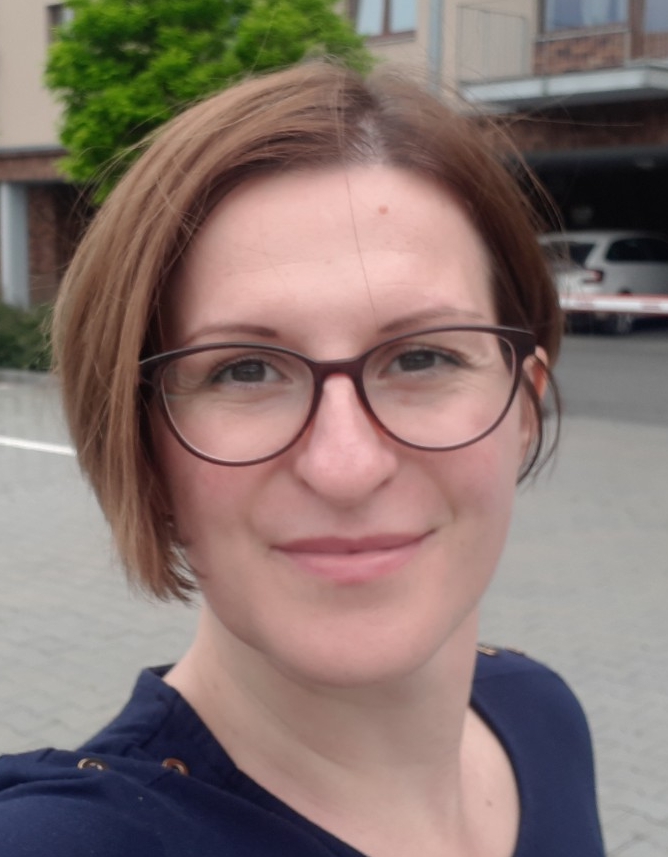
Drazana Lepir is a professor of philosophy and sociology, born in Banja Luka, Bosnia and Herzegovina. An accomplished activist and one of the founders of the "Oštra Nula" Citizens Association. She is a participant of various initiatives and social movements in Bosnia and Herzegovina and is interested in social engagement and political activity in the public space.
Abstract:
The reconciliation process in Bosnia and Herzegovina, which has been going on for over 20 years, is still trapped by political actors and their nationalist policies. Despite the very narrow space left for civil society organizations, there are initiatives that have succeeded in influencing the existing political narrative and making some progress. This progress is most noticeable at the local level, and this is where I would single out the "Jer me se tiče" initiative (eng. because it concerns me), created in 2013 in Prijedor, which brought together activists from all over Bosnia and Herzegovina and the region. I will also mention the experiences of other initiatives, which best represent how much political structures influence, ie. limit the process of dialogue and reconciliation through the creation of exclusive memory policies.
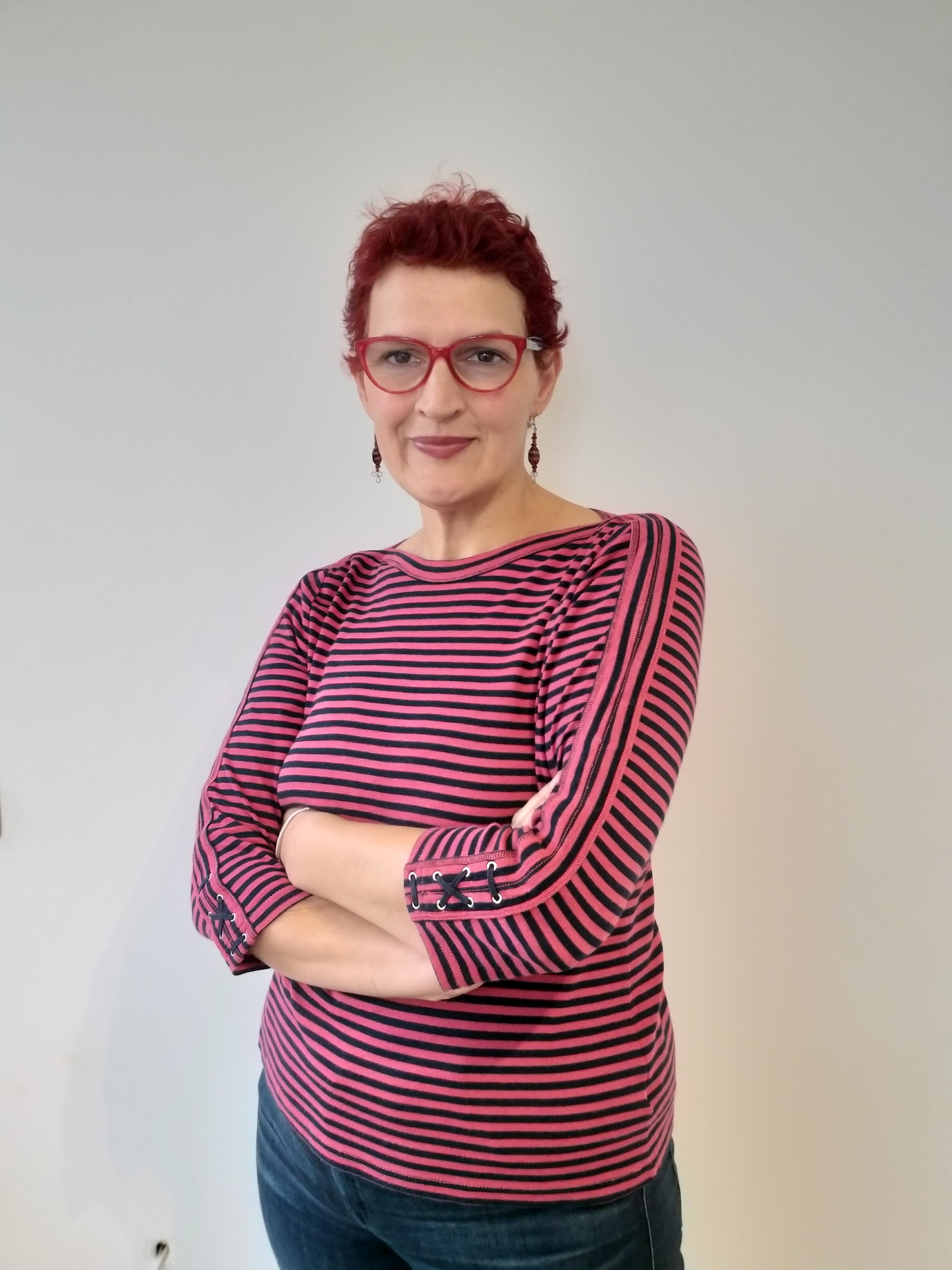
Nora Ahmetaj founded the Centre for Research, Documentation and Publication (CRDP) in 2010, and until 2016 served as its director. She was a member of the Regional Coordination Council of Coalitions for setting up the Regional Truth Commissioning Former Yugoslavia – RECOM until 2012.
She was trained in an Advanced Learning Course for Professionals on dealing with the past in Switzerland in 2010 and in 2015 as fellow at Alliance for Historical Dialogue and Accountability at Columbia University in the city of New York. In 2017, Ms. Ahmetaj was an O’Brien Fellow in Residence Program at McGill Law School’s Centre for Human Rights & Legal Pluralism. Since 2018 to present, she is a senior member of the Preparatory Team for preparing the road map for the establishment of a Truth and Reconciliation Commission in Kosovo. Ms. Ahmetaj was trained in human rights and international relations at the Carr Center for Human Rights Policy at Harvard’s John F. Kennedy School of Government, from 1999 to 2000. She earned an MPhil in Peace and Conflict Transformation Studies from the University of Tromsø, Norway, in 2005.
Do not Harm Victims’ Principle in Transitional Justice
Needs of Kosovo victims
A failure of transitional justice to engage with basic needs such as those for food, health and education demonstrates the gap that exists between victims’ needs as they are articulated and what a transitional justice framework seeks to deliver. During and in the immediate aftermath of conflict, a demand for security and basic needs is most often articulated, reflecting the insecurity and poverty that accompanies conflict and the fact that victims are likely to come from communities that suffered from pre-existing poverty and disempowerment and live in states where services are limited: ‘the fact remains that if one’s stomach is empty, if one does not have shelter or access to medical care when needed, the right to truth and accountability, among other civil and political rights, may seem a luxury’. Victimhood has emotional, psychological and social impacts that transitional justice theory and practice have largely neglected.
Throughout its work, the CRDP identified the existing gaps in services and knowledge of services. The consensus was that victims often encountered the following key barriers: • Lack of Adequate Resources • Lack of Institutional Support • Lack of Recognition • Lack of Knowledge about Benefits • Security Concerns • Lack of Education/Employable Skills • Lack of Psychological Support.
The most significant barriers that emerged in all of our discussions with victims were directly related to poverty.
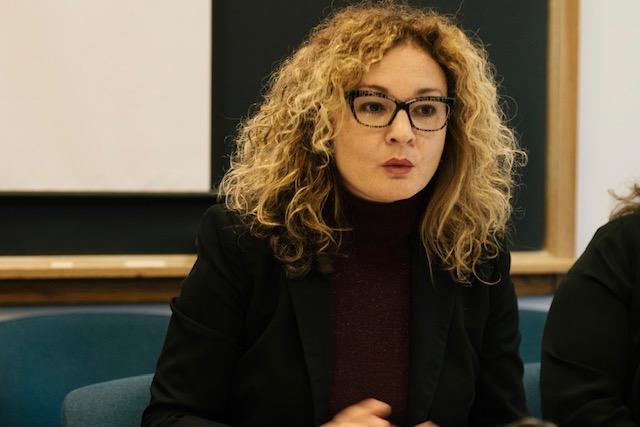
Marijana Toma (Belgrade, Serbia) has worked on transitional justice initiatives, regionally and internationally, since 2002, when she joined the Humanitarian Law Center, where she worked on documenting war crimes, oral history, education and transitional justice. She was the member and coordinator of the Expert group for drafting the mandate for RECOM (Regional Commission for Establishment of Facts about War Crimes in the former Yugoslavia between 1991-2001), Serbia Programme Coordinator in Impunity Watch, and also worked in the International Centre for Transitional Justice (ICTJ) in Cape Town, South Africa. Marijana graduated history at the University of Belgrade, Serbia and holds MPhil in Justice in Transformation from the University of Cape Town, South Africa. She currently works as programme manager of Memria Western Balkans Project and consultant on different transitional justice initiatives in the region and internationally.
Abstract
Since the end of the armed conflicts in the region of the Western Balkans, the countries established on the territory of the former Yugoslavia have been struggling with addressing the legacy of the atrocities committed in the wars in 1990s. Despite some efforts made primarily in the area of establishing criminal justice, other areas of the process of transitional justice have been neglected by political elites.
In Serbia, the process of dealing with the past has never been the priority of the post-Milosevic governments, being understood and presented only as a form of arresting and transferring the accused to the International Criminal Tribunal for the former Yugoslavia (ICTY). However, despite the fact that a significant number of Serb officials have been prosecuted and sentenced for crimes in Bosnia and Herzegovina, Croatia, Kosovo and Serbia, there was no willingness to establish an official narrative based on judicially established facts, reform the institutions that participated in the conflicts, and repair the damage and suffering inflicted upon victims. In recent years, the process of transitional justice have been almost completely abandoned by Serbian political elites.
How to revive the process of dealing with the past in Serbia and what are the potential consequences for the process of reconciliation in the region of the Western Balkans if the process of transitional justice is fully abandoned?
Vesna Teršelič

Founder and Director of the organization Documenta – Center for Dealing with the past based in Croatia. The central aim of her work is to establish factual truth about the war and to contribute to shifting the discussion from the level of dispute over facts towards a dialogue on interpretations. In doing so she continues her previous work as Director of the Center for Peace Studies, Zagreb, and as Founder and Co-ordinator of the Anti-War Campaign in Croatia. Since 1985 she focuses on organizing for social change, through advocating environment protection, affirming women's rights and promotion of human rights. As one of the initiators of non-political regional coalition of civil society organisations and individuals, working to establish a fact-finding commission into the Yugoslav wars, known as RECOM, she has been campaigning for years for establishing the facts about war crimes and human rights violations committed in former Yugoslavia from 1991 to 2001. She was awarded the Right Livelihood Award in 1998 for her efforts in building peace and affirming right to truth, justice and remebrance in post-Yugoslav countries after having been nominated for the Nobel Peace Prize in 1997. In 2013 Vesna Terselic was Richard von Weizsäcker Fellow of the Robert Bosch Stiftung.
Abstract
The peace agreements provided framework for normalization and still un-finished social trust building process, not just related to the most recent wars but also to the atrocities committed during the Second World War and political violence in period of Socialist Yugoslavia. On the level of executive branch of government prime areas of cooperation include search for forcibly disappeared and war crimes prosecution, most often valued as not satisfactory by the highest state institutions and civic society organizations. In consequence, all other possible fields of cooperation like remembrance culture, youth exchange, partnerships between the cities and municipalities are influenced in negative way. While cooperation between universities, cultural exchange, enthusiastically welcomed by public interested for theatre, film, literary and visual arts production in different post-Yugoslav countries, as well as flourishing tourism industry support trust building between citizens, from bellow, political will for systematic peace building is sadly lacking. Probably that is most visible in opting out from Regional Youth Cooperation Office (RYCO), an independently functioning institutional mechanism, founded by Albania, Bosnia and Herzegovina, Kosovo, Montenegro, North Macedonia and Serbia, while Croatia has not joined. It is also very clear from refusing support to initiative for establishing RECOM - Regional Truth-seeking Commission to cover war crimes committed in period 1991-2001, not supported by governments of Bosnia and Herzegovina, Croatia and Slovenia. While civil society organizations have not stopped cooperation during wars governmental reluctance feeds growing wave of distortion of historical records on genocides of Jews, Serbs and Roma committed during Second World War as well as questioning judicially established facts at Hague Tribunal and domestic courts, related to wars of nineties, including genocide in Srebrenica.

